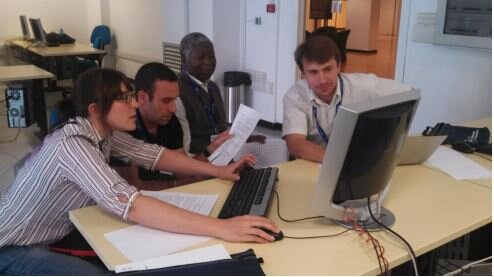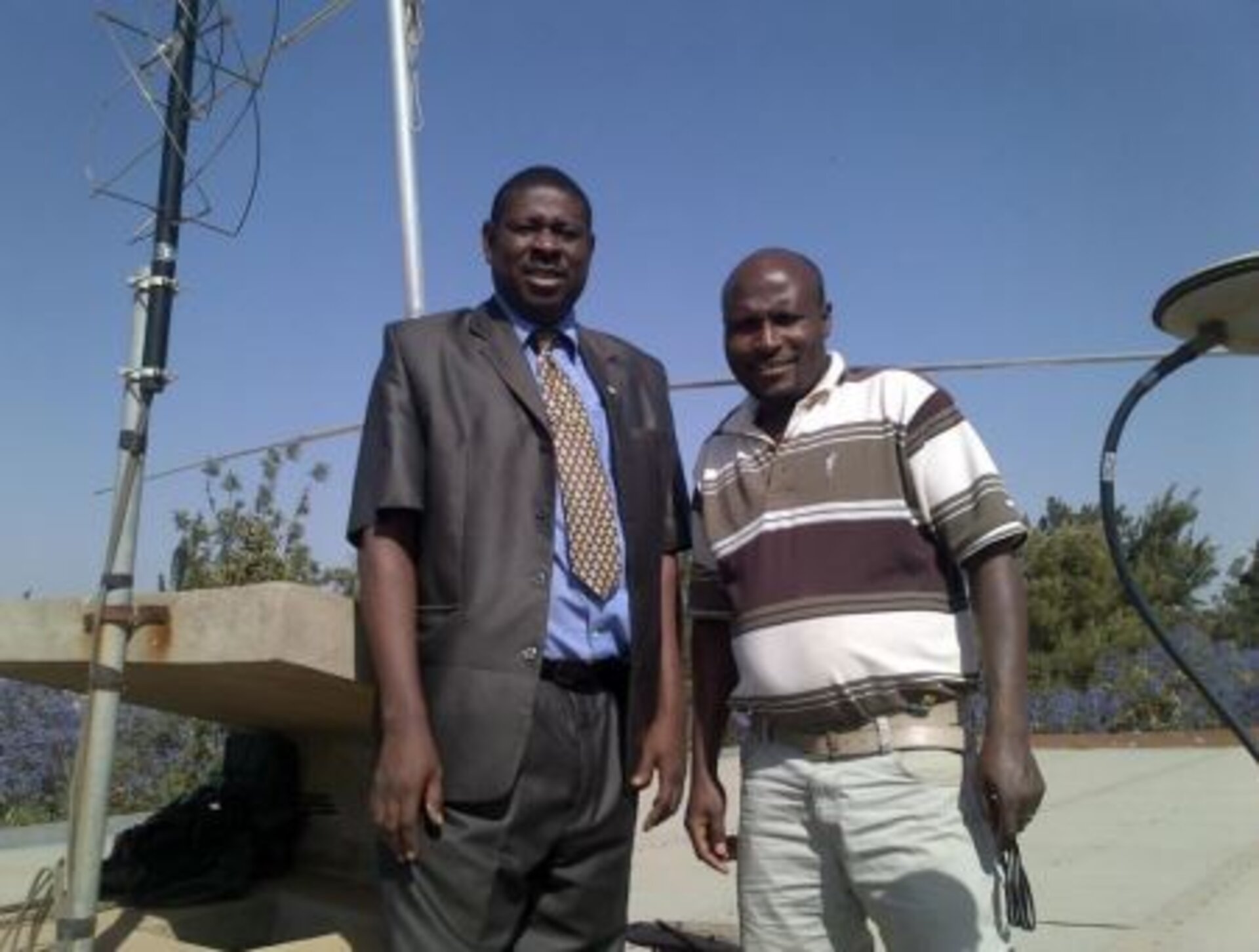Building bridges with Alcantara
Without a doubt humans will one day travel further away than ever before in space, bringing our universe just that little bit closer to all. Using space technology, distant regions of the world can also be brought closer by "building bridges". A new report on ESA's Alcantara initiative shows that space can enable people from diverse cultural backgrounds to work together on topics of common interest.
Alcantara: Partnerships for the Goals

Alcantara is ESA’s corporate tool to support international partnership opportunities in applied space research. It is aimed at fostering cooperation between research groups inside and outside Europe in study areas of mutual benefit. In line with the Agency’s international spirit, Alcantara´s work spans five continents and has addressed topics in over 17 emerging space faring nations. The newly released Alcantara Review Report analyses some of the lessons learned since the inception of the programme in 2012. It is also the introduction to a series of articles on recent achievements in Alcantara studies.
Africa occupies an important place within Alcantara, covering ten out of twelve completed studies during the first round of the programme. Investing in the entrepreneurial and creative skills of youngsters will be one of Africa’s biggest challenges in the coming years. Indeed, all ten of the countries with the world's youngest populations are in Africa, according to the World Economic (WE) Forum, and every year between 2015 and 2030 29 million new entrants will join Africa’s labour force [African Economic Outlook, 2017].

Alcantara´s core objectives include supporting the work of emerging research leaders within the international community by giving them the chance to contribute to ESA’s activities, programmes and priorities. Taking into account the importance of creating educational and training opportunities for motivated and promising youth in the African continent, Alcantara offers funding and grants and facilitates access to technical capabilities. So far, it has involved research institutes from Ghana, Kenya, Morocco, Egypt, Gabon, Uganda, Tanzania, Zambia, Nigeria, Mozambique, and Angola. The initiative operates through pilot studies and has demonstrated success in supporting access to remote technical assets and resources.
“a springboard to professional scientific research and a real bridge towards success”
Nadia Akdim, a researcher from Morocco involved in the study “Monitoring of Irrigation Schemes by Remote Sensing: Phenology versus Retrieval of Biophysical Variables”defines Alcantara as “a springboard to professional scientific research and a real bridge towards success”. Participation to Alcantara gave her additional access to technological resources, such as laboratory equipment and analysis, satellite data and international journals, in addition to allowing many high level scientific discussions. Further adding on her networking experience, Akdim notes the valuable contacts she has created, providing her access to research conferences through Europe and Africa and the opportunity to be later involved as a trainer in the Tiger Capacity Building Facility. The ESA initiative has opened the door for future collaborations with the same researchers on Euro-African projects.

The United Nations 17th Sustainable Development Goal (SDG) "Partnerships for the Goals" lies at the heart of ESA's Alcantara activities. Alcantara aims at fostering international collaboration and capacity-building opportunities to address developmental challenges through the use of space technology and research. (n the different studies, local researchers have focused on improving water resource management, notably through the Tiger initiative, geo-hazards risk assessment, land and coastal areas management, among other issues. Such studies enable both European and international researchers to contribute to the scientific research for socio-economic and environmental challenges.
In our next article on the “Maritime traffic in Gulf of Guinea” study, which will be completed in the coming weeks, we will explore the links between Alcantara´s space research work and the human activities on the oceans and seas (SDG14) in West Africa.
For additional information, please contact Andrés Gálvez:
E-mail: andres.galvez @ esa.int





